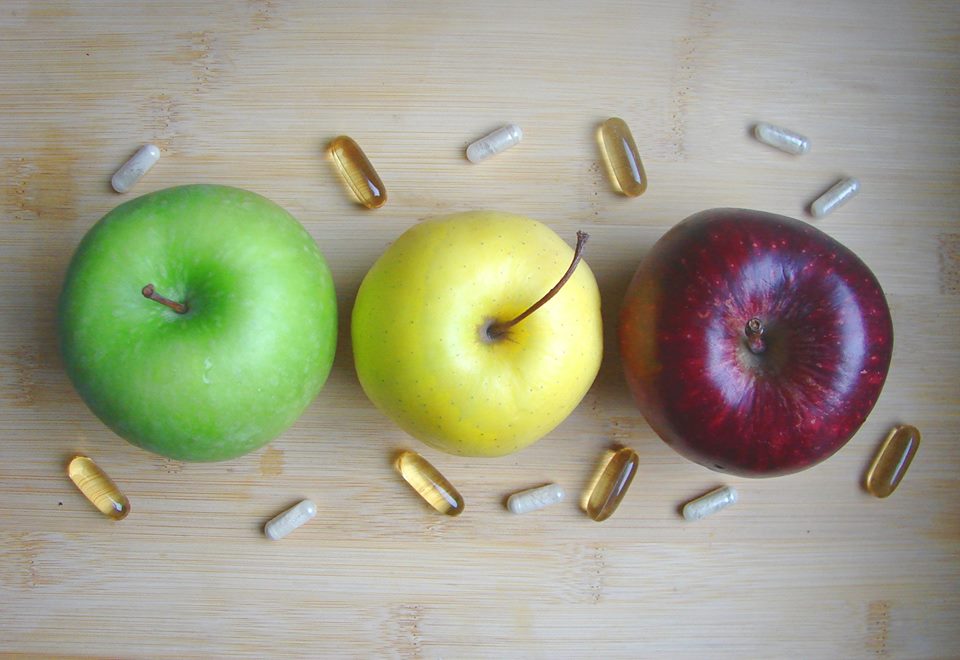I have been working on a project for some time now comparing synthetic vs fermented vs food sourced vs whole food supplements. I went in with an open mind as this industry is huge. It was essential I first found some evidence to support all corners.
So what I found was that ‘Natural food complex’ vitamins are not all chemically identical to isolated synthetic vitamins. Some synthetic vitamin analogues have been shown to have no vitamin action some can act as vitamin antagonists and some can even produce deficiency symptoms of the specific vitamin they are analogues of. Vitamins need co-factors to be absorbed which are just not found in single isolated synthetic vitamin. So when we consume them it may lead to our bodies becoming deficient in other vitamins as are bodies ‘adapt’ for absorption.
Several papers that I found cited negative results or issues with absorption from vitamins. I have summarised just a few below – Vitamin A; Beta carotene and Folic Acid.
Literature cited in the 90s links with high levels of synthetic Vitamin A consumption and possible links with birth defects, whilst food sourced Vitamin A at moderate levels showed no adverse problems.
You then have the beta carotene and retinol efficacy trial in 1996. Researchers questioned when the link between beta-carotene-containing foods (all natural) and lung cancer prevention was not duplicated in studies using synthetic pills. In smokers, synthetic beta-carotene has apparently caused an increased risk of lung cancer in double-blind research. Studies have shown that the natural form has antioxidant activity that the synthetic form lacks. Increasingly, doctors are recommending that people supplement only with natural beta-carotene. However, no studies have explored whether the adverse effect of synthetic beta-carotene in cigarette smokers would also occur with natural beta-carotene supplementation. Until more is known, smokers should avoid all beta-carotene supplements and others should avoid synthetic beta-carotene. In supplements, the natural form can be identified by the phrases “from D. salina,” “from an algal source,” “from a palm source,” or as “natural beta-carotene” on the label. The synthetic form is identified as “beta-carotene.”
Folic Acid Supplements tend to be in one of three forms; folate, folic acid, and L-methylfolate. Recently if you read you’re back of pack on supplements you may have seen that it will say something like Folate (as L-5-methyl tetrahydrofolate) instead of folic acid. Current research has found that L-methylfolate is the most promising form to supplement, as many people seem to have genetic mutations in the enzyme which produces L-methylfolate from folate and folic acid, so supplementing the folic acid or folate only causes a partial backlog in these people whereas supplementing L-methylfolate may circumvent this genetically disadvantage. Folic acid (vitamin B9) is the synthetic form of folate used in most supplements, and is the most studied form of folate. Research is supporting the idea that too much synthetic folic acid can increase risk of some types of cancers and it may not even be as effective in preventing neural tube defects. Supplementing L-methylfolate bypasses the body’s natural checkpoints for preventing over-methylation (please see note below on what methylation is). So we must be incredibly cautious with the dosage, as unnatural levels of folate is linked with several issues including cancer risk. Your vitamin B levels – particularly vitamin B12 (cobalamin) – must be adequate before taking L-methylfolate. Folate may also enhance antidepressant effects of known antidepressant drugs, and is believed (although not clinically proven) to potentially trigger mixed/manic episodes in those with bipolar.
Ok just a quick note as I myself find it quite frustrating when people place a word in a document that has great importance to the health of the body but no explanation –Above I mentioned Methylation. In simple terms it is a process in which certain chemicals called ‘methyl groups’ are added to various constituents such as protein or DNA to keep them in good working order. Probably one of the most important methylation process is homocysteine a by-product of methionine when it is used to methylate your protein and DNA. Homocysteine needs to be methylated back to methionine or you can be at a greater risk of cardio vascular disease and depression.
Comparison of all
Synthetic Vitamins are generally made in a lab from from raw materials that don’t occur in nature. They can also be synthesized from petroleum by-products or other industrial chemicals and solvents. As discussed above vitamins need co-factors for absorption, synthetic vitamins are with or without co-factors; when co-factors are present, they are also in synthetic form.
Cultured supplements or sometimes they are called fermented involves the same process behind cultured foods like yogurt, kefir, miso, and sauerkraut. Nutrient supplements are often grown in yeast or algae. Raw materials (whole foods, minerals and or watch out for synthetic nutrients) are added to yeast/algae suspensions where they concentrate within cells. The yeast/algae are then made into a vitamin supplement. The theory here is that yeast/algae contain the nutrients they’re fed in a whole food complex. Sometimes food cultured vitamins are combined with synthetic vitamins to increase potency (i.e., to bump up the milligram/microgram count on the label), since most have a low potency on their own.
A food based supplement is made by enzymatically reacting natural vitamins with extracts containing vegetable proteins and then making this into a supplement. The important message here is that food sourced are from raw materials that DO occur in nature (e.g. algae, fruits, vegetables, herbs, spices) and so may also contain those important co-factors needed for bio-availability and absorption. Also they do not include petroleum by-products or other industrial chemicals and solvents.
Whole food supplements are made from pure plants and foods as they occur in nature. They are full-spectrum concentrated to contain the naturally-occurring vitamins and minerals along with co-factors and other bioactive compounds. So they are in a form that is highly bioavailable and the body recognizes as food making them easily absorbed and assimilated by the body.
Thank you for reading..
